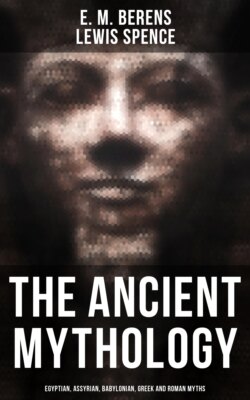Читать книгу The Ancient Mythology: Egyptian, Assyrian, Babylonian, Greek and Roman Myths - Lewis Spence - Страница 111
На сайте Литреса книга снята с продажи.
Ishtar as a War-Goddess
ОглавлениеIshtar was frequently placed by the side of Asshur as a war-goddess. Ere she left the plains of Babylonia for the uplands of Assyria she had evinced certain bellicose propensities. In the Gilgamesh epic she appears as a deity of destructive and spiteful character, if not actually of warlike nature. But if the Babylonians regarded her first and foremost as the great mother-goddess, the Assyrians took but little notice of this side of her character. To them she was a veritable Valkyrie, and as the Assyrians grew more and more military so she became more the war-goddess and less the nature-mother of love and agriculture. She appeared in dreams to the war-loving Kings of Assyria, encouraging and heartening them with words of cheer to further military exploits. Fire was her raiment, and, as became a goddess of battle, her appearance was terrific. She consumed the enemies of Assur-bani-pal with flames. Still, strangely enough, in the religious texts, influenced probably by Babylonian sources, she was still to a great extent the mild and bountiful mother of nature. It is in the historical texts which ring with tales of conquest and the grandiloquent boastings of conquering monarchs that she appears as the leader of armies and the martial goddess who has slain her thousands and her tens of thousands. So has it ever been impossible for the priest and the soldier to possess the selfsame idea of godhead, and this is so in the modern no less than in the ancient world. Yet occasionally the stern Assyrian kings unbent, and it was probably in a brief interval of peace that Assur-nazir-pal alluded to Ishtar as the lady who "loves him and his priesthood." Sennacherib also spoke of the goddess in similar terms. It is necessary to state that the name or title of Belit given to Ishtar does not signify that she is the wife or consort of Bel, but merely that she is a 'great lady,' for which the title 'Belit' is a generic term. If she is at times brought into close association with Asshur she is never regarded as his wife. She is not the consort of any god, but an independent goddess in her own right, standing alone, equal with Asshur and the dependant of no other divinity. But it was later only that she ranked with Asshur, and purely because of her military reputation.
